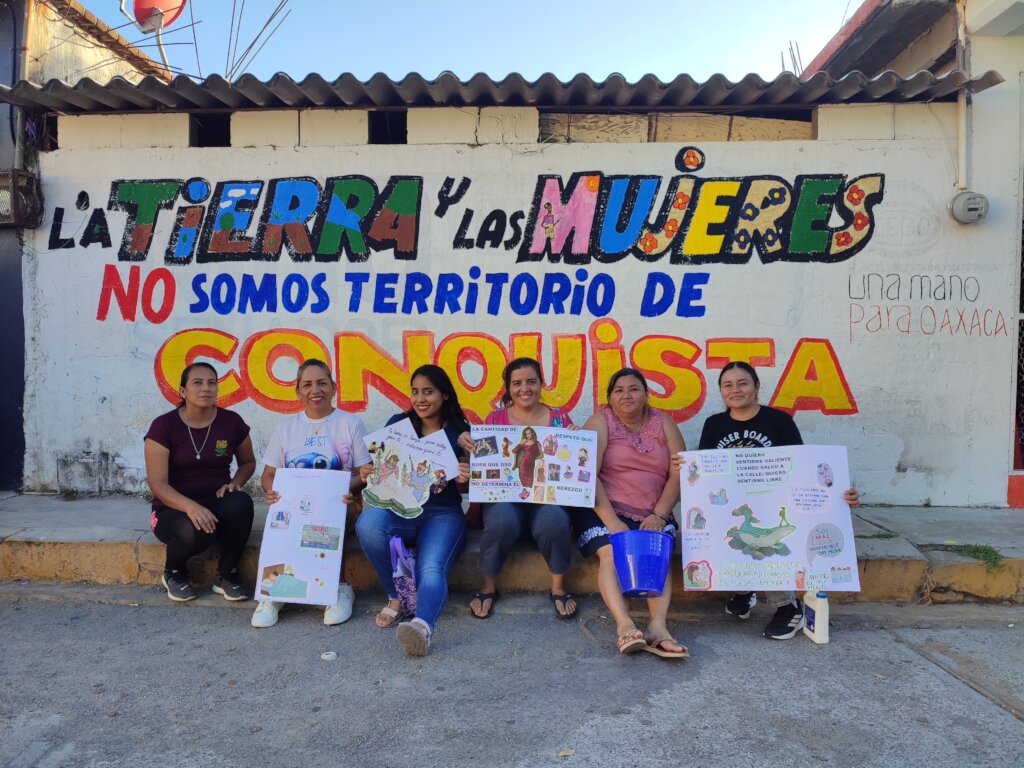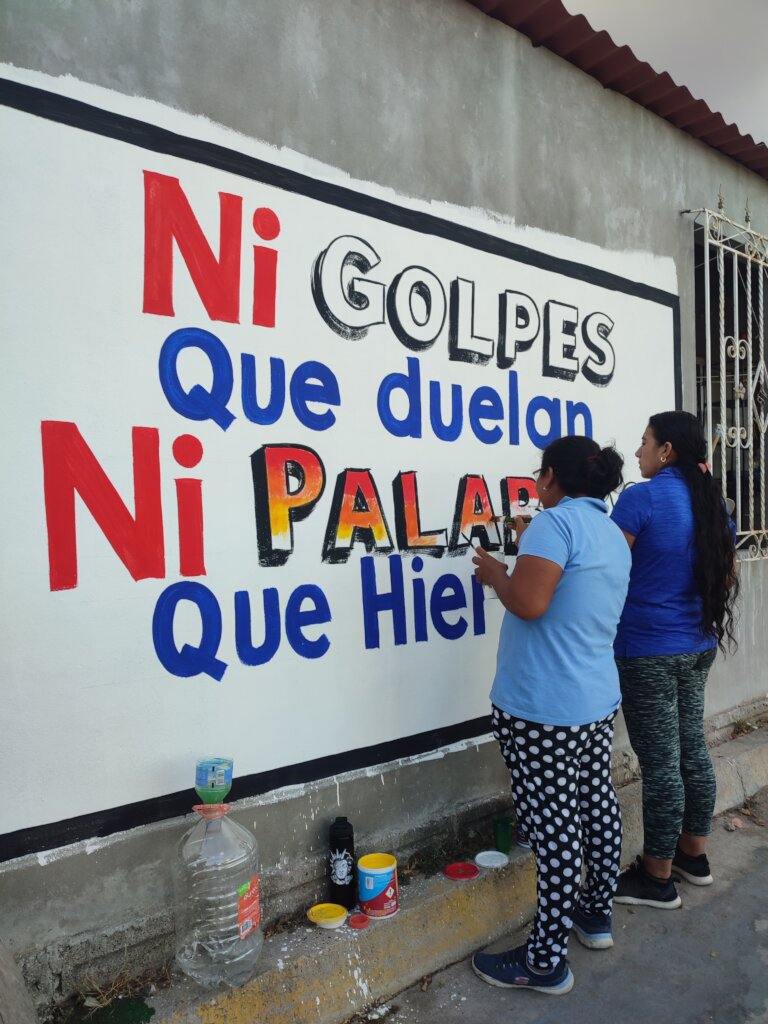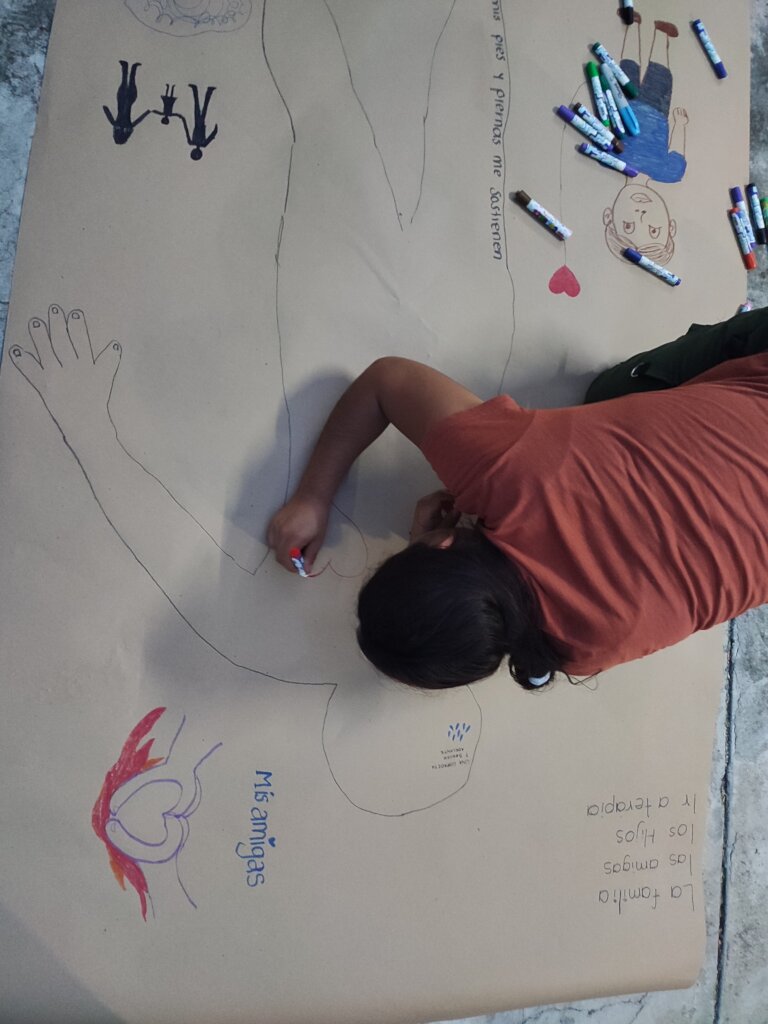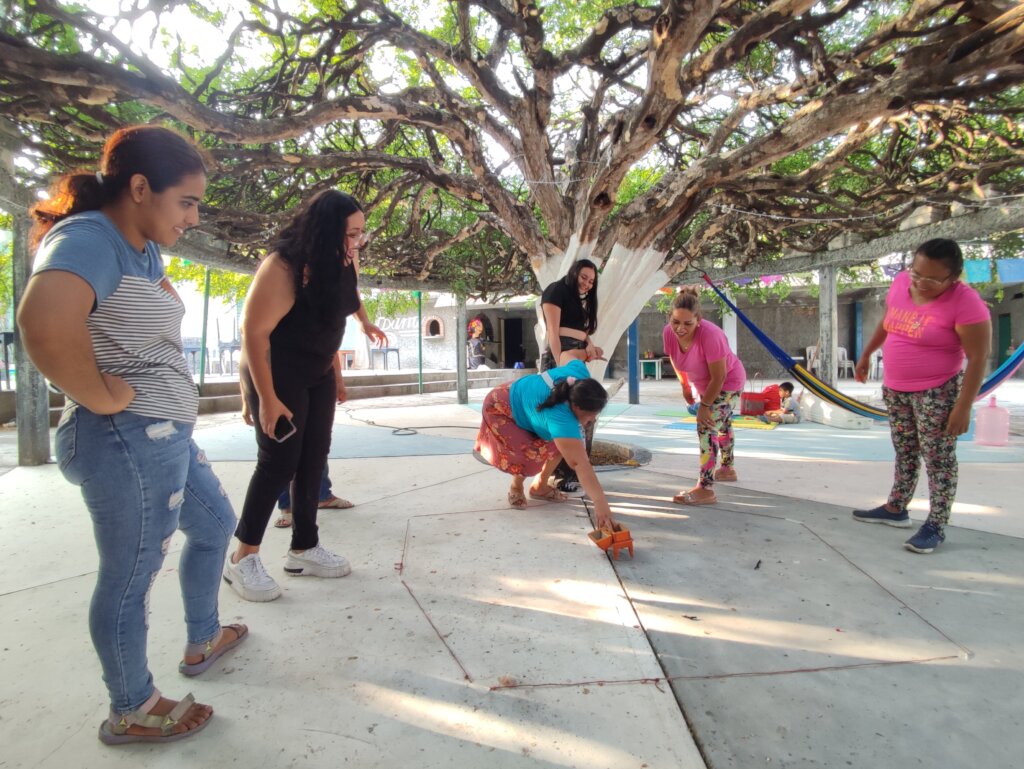By Alejandra Rosado | CEO
Knowing that so many of us experience violence daily—in our homes, in our communities—led us to a profound realization: we need spaces where we can listen to each other, share our stories, and raise awareness. We refuse to let this way of life be considered normal. That is why we invited Zharelly, a woman we deeply admire, to guide a disruptive anti-violence campaign created by the women of the "Mapping Our Territory" program in Santa María Mixtequilla.
When the women arrived at the workshop, they didn’t know what to expect. But as soon as they realized we would be talking about the violence we experience, they eagerly joined in. They shared their stories, their pain, their struggles. One of them told us how she managed to leave a violent partner, even without the support of her own family. This made us reflect: why is it that so many of us lack the tools to break free from oppression?
As we spoke, those living with men recognized in their own lives the different forms of machista violence. We knew we couldn’t stop at conversation alone. We needed to make all that pain visible, to transform it into something tangible—something people could see, something those who harm us could no longer ignore.
That’s when the ideas began to flow. The younger women proposed taking our messages to the streets—filling the town with color and words that would spark reflection. We painted signs, created prints, and wrote powerful messages. And what came next were even bigger dreams. We wanted to bring these workshops into schools, so young people could recognize different forms of violence and transform their relationships.
But we also dreamed of reviving mutual support networks. "As a farmer, I wish I could call on my community like in the old days—to work together, to help each other. If they helped me with my crops, I would offer breakfast to everyone. That way, we support one another and we listen to each other," said Doña Ángela. Her words stayed with us: solidarity is also a form of resistance.
Every moment in the workshop was meaningful, but one exercise left a lasting impact: "The Marks of Violence." Each woman traced a silhouette and symbolized on it what her body experiences in the face of injustice and discrimination. One woman shared how, after enduring abuse, she lost the ability to feel pleasure. She felt chained—bound, both in body and mind. To cope, she had tried to numb her emotions, to stop feeling altogether.
Zharelly left us with a question that lingers: "After this campaign, I keep asking myself over and over—what are the marks of resilience? The certainties, the hopes, the motivations that women hold onto as they face this reality? There is such a deep need to be heard, such an urgency to create spaces of trust and safety where we can find ways to resist injustice."
To everyone who helped make this first anti-violence campaign possible in Santa María Mixtequilla—thank you. This is a giant step toward reclaiming our voices, our lives, and our territory.
Project reports on GlobalGiving are posted directly to globalgiving.org by Project Leaders as they are completed, generally every 3-4 months. To protect the integrity of these documents, GlobalGiving does not alter them; therefore you may find some language or formatting issues.
If you donate to this project or have donated to this project, you can receive an email when this project posts a report. You can also subscribe for reports without donating.
Support this important cause by creating a personalized fundraising page.
Start a Fundraiser


